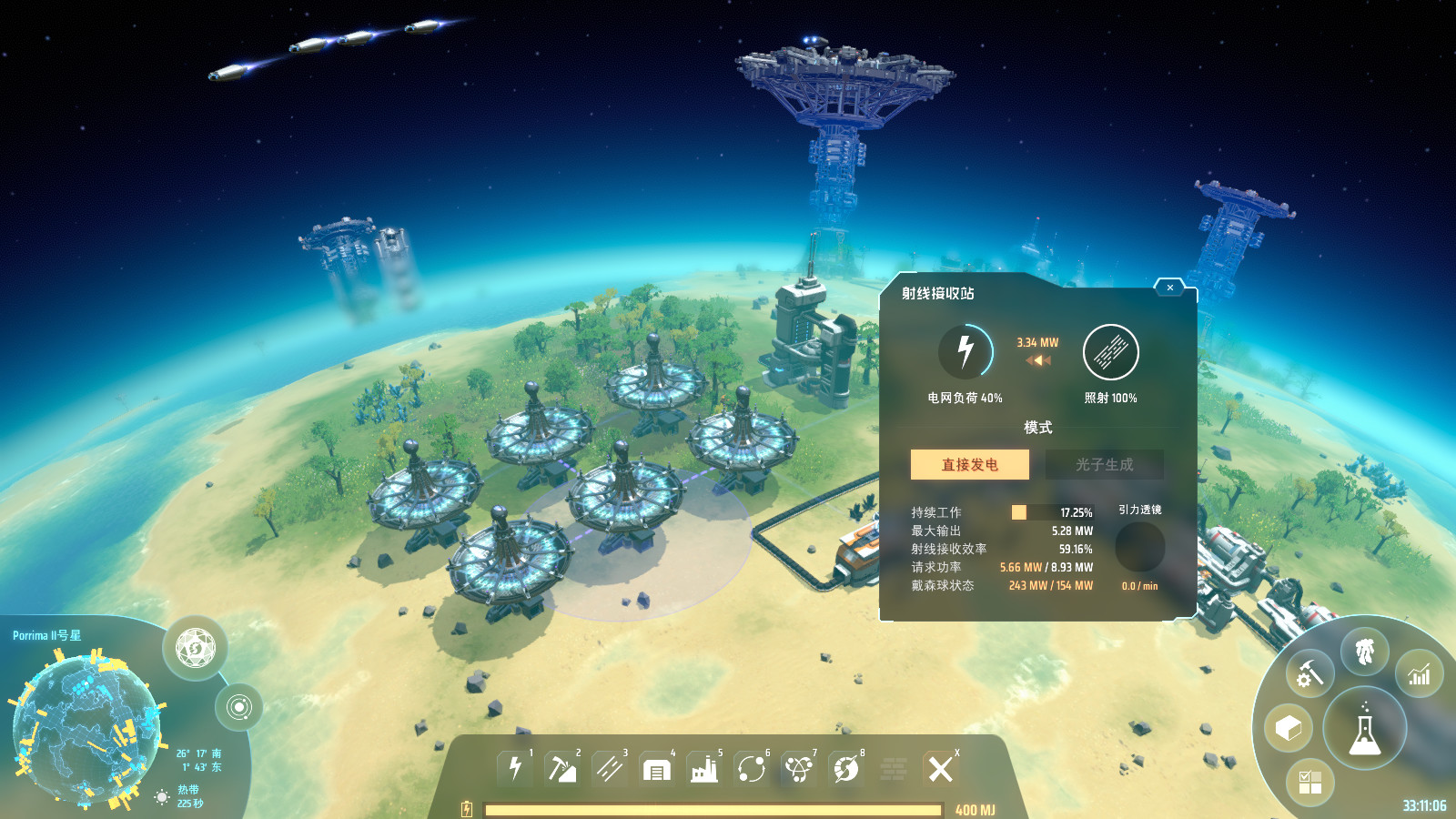If you love Factorio's automation, play Dyson Sphere Program next
Take your factories to the stars.

Land on an alien planet. Begin harvesting resources like stone, iron ore, and copper. Build machines to do the harvesting for you, and generators to power those machines. String together conveyor belts to move resources from mining equipment to fabricators, create products, and send those products to assemblers to create more complex products. Build machines, and eventually, build machines that can build machines.
If it sounds familiar, you've probably played Factorio, or maybe Satisfactory. If you like those games, I've got a hunch you'll also like Dyson Sphere Program, now in Early Access, because it's swinging around the same sort of big automation energy. Plus, you don't have to stick to just one planet. Dyson Sphere Program's got much bigger plans for you than that.
A Dyson Sphere, if you haven't come across it in sci-fi, is a theoretical structure that can capture the majority of a star's energy output. Think about covering every inch of planet Earth with solar panels—you'd soak up a ton of power, but still only manage to harness the tiniest fraction of the sun's energy. A Dyson Sphere is meant to surround the sun and absorb all those delicious, useful rays. Thing is, it takes a hell of a lot of building material to create a shell around a star, more than a single planet can provide.
So in terms of scope, Dyson Sphere Program is a wee bit bigger than Factorio. The moon you begin on is a cute, chunky little orb you could sprint all the way around in a few minutes in your mech suit. But while you begin on that single moon, your interests will spread outward until you're harvesting materials from other planets in the solar system, and eventually building structures in space to suck up all that energy from the star you're orbiting. And there are other stars out there, too, in other systems, and when you've burned through those you can even create stars of your own somewhere down the line.
Me? I'm nowhere near doing anything like that yet. I'm still learning the ropes, firmly planted on my itty bitty starter moon, but getting the basics of mining, moving materials around, sorting them into fabricators, building products, and looking at the long, long tech tree still ahead of me.
If any of this sounds daunting, I'm happy to say Dyson Sphere Program has a decent tutorial to ease you in, though it sometimes lacks a bit of specificity and I've spent a fair amount of time searching forums and guides for answers. I know what to do, but my questions are typically: "Yeah, but like, how?"
Like Factorio there's a lot of satisfaction from just seeing your resources being moved around properly where they need to go. Each time I successfully accomplish something, even minor, I can't help but jump my little mech up and down happily. I'm still eons from conquering the stars, but shipping copper plates and iron plates to the same machine so they can be combined into computer circuits? Feels good, man.
Keep up to date with the most important stories and the best deals, as picked by the PC Gamer team.
Advancing to a new level of tech can also make you realize everything you've built so far, pleasing as it initially was, kinda sucks. Networks of conveyor belts that produce a product might then need to be shipped elsewhere to create something I've just unlocked, and in the path of that elsewhere is often a bunch of stuff I've built and either have to work around or deconstruct and move. I like my little factory colony, but it's also kind of a spidery, chaotic mess at this point, and when I watch players on Twitch or YouTube and see their neat rows of machines and conveyer belts, all I want to do is nuke my planet and start over.
For an Early Access game, Dyson Sphere Program feels extremely polished—so far, at least. Like I said I'm just starting out. But if you're a fan of Factorio, Satisfactory, or other games about automation, this might scratch that same itch.

Chris started playing PC games in the 1980s, started writing about them in the early 2000s, and (finally) started getting paid to write about them in the late 2000s. Following a few years as a regular freelancer, PC Gamer hired him in 2014, probably so he'd stop emailing them asking for more work. Chris has a love-hate relationship with survival games and an unhealthy fascination with the inner lives of NPCs. He's also a fan of offbeat simulation games, mods, and ignoring storylines in RPGs so he can make up his own.

